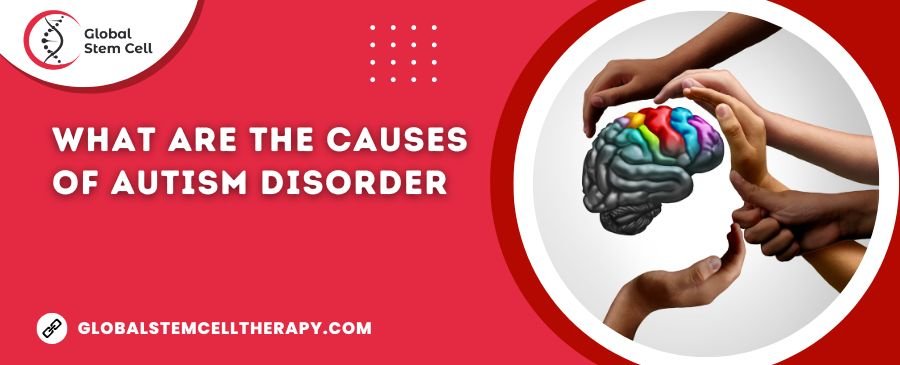
Unraveling the Mystery for Causes of Autism Spectrum Disorder!
Table of Content
Autism Spectrum Disorder (ASD) is a complex and multifaceted developmental disorder that affects an individual’s communication, social skills, and behavior. With the increasing prevalence of autism in recent years, understanding its causes has become a topic of great interest and research. In this comprehensive blog, we will delve into the possible causes of autism spectrum disorder, examining the roles of genetics, environmental factors, and prenatal influences. By shedding light on these contributing factors, we hope to foster greater understanding and empathy for those affected by ASD.
Exploring the Genetic Factors
The Role of Genes in Autism
There is substantial evidence to suggest that genetics play a significant role in the development of autism spectrum disorder. Research indicates that multiple genes contribute to the risk of ASD, with some estimates suggesting that over 100 different genes may be involved. These genes may influence various aspects of brain development, function, and connectivity, ultimately leading to the characteristics associated with autism.
Heritability and Family Connections
Studies of families and twins have provided further insights into the heritability of autism. Research has found that if one identical twin has autism, the other twin has a significantly increased likelihood of also having the disorder. Additionally, siblings of individuals with autism are more likely to be affected by ASD compared to the general population. These findings support the notion that genetic factors play a substantial role in the development of autism spectrum disorder.
Examining Environmental Factors
Prenatal and Perinatal Influences
There is growing evidence to suggest that certain prenatal and perinatal factors may contribute to the risk of developing autism. Some of these factors include:
- Maternal infections during pregnancy: Infections such as rubella, cytomegalovirus, or toxoplasmosis can increase the risk of autism in the offspring.
- Exposure to certain medications: The use of certain medications during pregnancy, such as valproic acid or thalidomide, has been associated with an increased risk of ASD in children.
- Birth complications: Complications during birth, such as oxygen deprivation, can contribute to the development of autism.
It is important to note that while these factors may increase the risk of autism, they do not guarantee that a child will develop the disorder. Researchers are still working to understand the complex interplay between genetics and environmental factors in the development of ASD.
Postnatal Factors
Although less well-established than prenatal factors, some postnatal factors have also been implicated in the development of autism. These include:
- Exposure to environmental toxins: Some studies suggest that exposure to heavy metals, pesticides, or air pollution may increase the risk of ASD, although the evidence is not yet conclusive.
- Immune system abnormalities: Research has found that some individuals with autism have abnormalities in their immune system, which may contribute to the development of the disorder.
Further research is needed to establish the causal relationship between these postnatal factors and the development of autism spectrum disorder.
The Interplay of Genetics and Environment
Gene-Environment Interactions
The development of autism spectrum disorder is likely influenced by a complex interplay between genetic and environmental factors. This means that certain environmental factors may interact with an individual’s genetic makeup to increase the risk of ASD. For example, a child who has a genetic predisposition to autism may be more susceptible to the effects of prenatal infections or exposure to environmental toxins. Understanding these gene-environment interactions is crucial for identifying potential risk factors and developing preventive strategies.
Epigenetics and Autism
Epigenetics refers to changes in gene expression that are not caused by changes in the DNA sequence itself but by chemical modifications that affect how genes are read and transcribed.
Investigating the Role of Brain Development
Early Brain Development in Autism
Several lines of research have suggested that atypical brain development may contribute to the development of autism spectrum disorder. Studies have found that some individuals with ASD show differences in brain growth, connectivity, and neural activity compared to typically developing individuals. These differences may be present from early in life and could contribute to the characteristic features of autism, such as difficulties with social interaction and communication.
Potential Causes of Atypical Brain Development
Researchers are still working to understand the factors that contribute to atypical brain development in autism. Some possible factors include:
- Genetic influences: As mentioned earlier, numerous genes have been implicated in ASD, many of which are involved in brain development and function. Genetic mutations or variations in these genes could lead to alterations in brain growth and connectivity.
- Environmental factors: Exposure to certain environmental factors during critical periods of brain development, such as prenatal infections or toxins, may disrupt the normal process of brain maturation and increase the risk of ASD.
Further research is needed to elucidate the precise mechanisms by which genetic and environmental factors influence brain development in autism spectrum disorder.
The Ongoing Quest for Answers
While the exact causes of autism spectrum disorder remain unknown, it is clear that a combination of genetic, environmental, and developmental factors contribute to the development of this complex condition. As researchers continue to investigate the underlying causes of ASD, they are uncovering valuable insights that may ultimately lead to more effective prevention strategies and treatments.
The Importance of Early Diagnosis and Intervention
Early diagnosis and intervention are crucial for improving outcomes for individuals with autism spectrum disorder. Research has shown that early, targeted interventions can lead to significant improvements in communication, social skills, and overall functioning. By recognizing the early signs of autism and implementing appropriate interventions, parents and caregivers can support their child’s development and help them reach their full potential.
Supporting Families and Individuals with Autism
As our understanding of the causes of autism spectrum disorder continues to evolve, it is essential to provide ongoing support and resources for families and individuals affected by ASD. This includes access to evidence-based treatments, educational accommodations, and community-based services. By fostering greater awareness and understanding of autism, we can help create a more inclusive and supportive society for all individuals on the spectrum.






